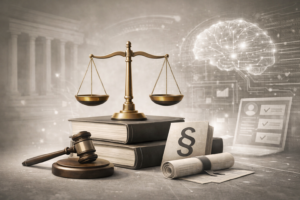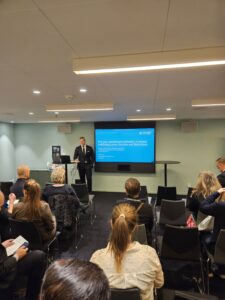Dark campaign finance in German politics – The underestimated problem
During the recent German federal election, the nation experienced an increasing amount of large-scale campaign donations and a growing role of billionaires as political financiers. While such developments are troubling enough in their own right, the problem has become elevated by the fact that parties get increasingly creative in hiding the exact origin of some donations. These trends have caused a major downslide in Germany’s ranking in Transparency International’s latest corruption index.
The most recent development in this regard was the exposure of a €2.35 million donation to the far-right Alternative for Germany (AfD), which allegedly was funneled through a strawman by the billionaire Henning Conle, who has been involved in political donation scandals before.
Other parties have funneled chunks of their campaign contributions through “independent” associations named after the main party. These associations fill the role of the listed donor according to the transparency clause in § 25 III PartG (German Law on Political Parties), while the identity of those who donated to the association remains hidden from the public.
These developments are reminiscent of the U.S. campaign finance law situation since the fatal 2010 U.S. Supreme Court decision Citizens United v. Federal Election Commission in which political spending by corporations was ruled to be protected as free speech by the First Amendment to the U.S. Constitution. Even though the judgment superficially stressed the need for disclosure of the identities of the donors to prevent corruption, in practice it was the single greatest enabler of anonymous dark money entering politics. This has led to a state of the art, in which the current role of private money in U.S. politics can hardly be overestimated and led some representatives and commentators to suggest that the U.S. has (to some extent) turned into an oligarchy. For example, in the 2024 cycle both for the House and the Senate races, more than 90% of the time the candidate with the deeper pocket won the election and donations increasingly come from the richest super-doners. This status quo is the result of a prolonged self-reinforcing cycle of wealth leading to political power, resulting in policies that further concentrate wealth, translating into further growth of power.
While Germany is not (yet) in the same position, mainly because the parties receive compensatory state election campaign subsidies in parallel, the trend is moving in the wrong direction, and the described American developments prove that the problem will not disappear on its own. Therefore, all three branches of government are urgently called upon to take action before delays will culminate in circumstances as precarious as the present ones in the U.S. without a realistic path towards a turnaround.
In concrete terms, this would mean enacting a strict upper limit for private donations to political parties (as is already the case in 19 other EU member states), either through an addition to the PartG or through interpretive innovation by the constitutional court by establishing it as part of a right to equal opportunities for parties in political competition under Art. 21 in conjunction with Art. 3 I of the German constitution. Other helpful measures would be a strict interpretation of the existing transparency rules in the PartG, the creation of an independent investigative authority for illegal party donations, stricter rules for campaign contributions in state elections as well as tighter regulations for representatives’ additional income and the phenomenon of “party sponsorship”.
For a more elaborate discussion of the topic in German, please see https://verfassungsblog.de/parteien-grosspenden-transparenz/.
Kristof Heidemann
Kristof Heidemann is a PhD researcher at the Faculty of Law of the University of Turku







